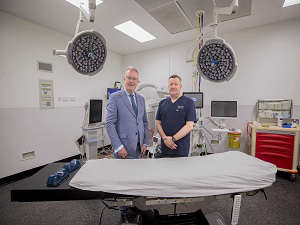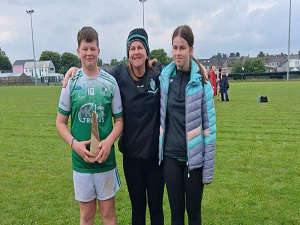
Prosecutors are to consider the case against former soldiers after detectives finished interviewing them about the Bloody Sunday atrocity.
The deaths of 14 civil rights demonstrators in Londonderry after paratroopers opened fire in 1972 are being reinvestigated by police after a public inquiry found the victims innocent.
Relatives of those killed want to see offenders prosecuted, a spokesman for the families said.
Police Service of Northern Ireland (PSNI) Detective Chief Inspector Ian Harrison said: "Police have concluded interviews with former military personnel and are in the process of compiling a report for the PPS (Public Prosecution Service).
"The families have been informed of this and we will continue to keep them updated in relation to developments."
Thirteen people were killed by members of the Parachute Regiment on the day of the incident in Derry's Bogside. Another victim died in hospital four months later.
Northern Ireland police launched a murder investigation in 2012.
It was initiated after a Government-commissioned inquiry, undertaken by Lord Saville, found none of the victims was posing a threat to soldiers when they were shot.
Following the publication of the Saville report in 2010, then prime minister David Cameron apologised for the Army's actions, branding them "unjustified and unjustifiable".
A petition calling for soldiers involved in Bloody Sunday to be granted immunity from prosecution has gained tens of thousands of supporters.
Three leading judges at London's High Court blocked the arrest and transfer to Northern Ireland of former paratroopers who faced questioning over whether they committed criminal offences.
The judges said there was no reason why the seven ex-soldiers could not be interviewed in England and Wales, where they live.
Stormont Assembly member and civil rights campaigner Eamon McCann said effectively all the families supported prosecutions and welcomed the conclusion of the police interviews.
"This is another staging post that we have reached. It is positive news in that sense and a lot of people thought we would never reach this stage."


 Mother and two children murdered in Maguiresbridge to be buried together By Jonathan McCambridge and Rebecca Black, PA
Mother and two children murdered in Maguiresbridge to be buried together By Jonathan McCambridge and Rebecca Black, PA
 Surgeon tasked with tackling waiting lists says they are a ‘national shame’
Surgeon tasked with tackling waiting lists says they are a ‘national shame’
 First Minister disappointed to not attend Belfast Pride this year
First Minister disappointed to not attend Belfast Pride this year
 Crowds expected at vigil for mother and children killed in Co Fermanagh shooting
Crowds expected at vigil for mother and children killed in Co Fermanagh shooting